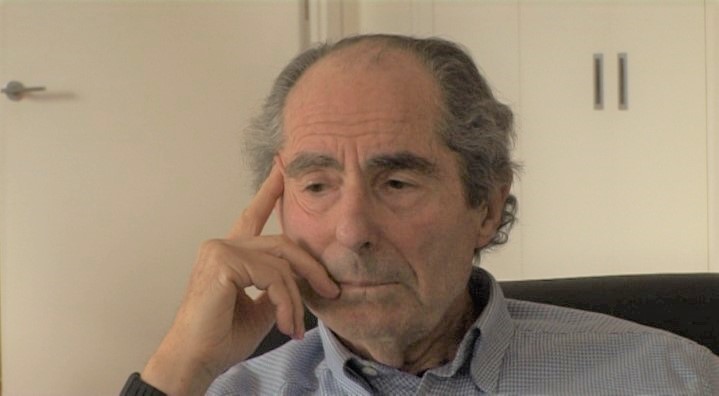NEXT STORY

Nemesis (and Madame Bovary)
RELATED STORIES

NEXT STORY

Nemesis (and Madame Bovary)
RELATED STORIES


|
Views | Duration | |
|---|---|---|---|
| 31. The Plot Against America | 597 | 05:13 | |
| 32. What would have happened if fascism had come to the USA? | 511 | 00:36 | |
| 33. Shorter books – dreams and nightmares | 459 | 03:33 | |
| 34. Finishing the Zuckerman sequence | 457 | 04:26 | |
| 35. Four short books | 413 | 01:24 | |
| 36. Everyman | 530 | 04:48 | |
| 37. 'Indignation', 'The Humbling' and 'Nemesis' | 368 | 00:57 | |
| 38. The writer's work: recognising the gift from the screw-up | 562 | 00:52 | |
| 39. The Humbling | 349 | 01:56 | |
| 40. The inception of Nemesis | 366 | 03:54 |


I came upon that by doing something that I often do before I write, before I start on a new book, is, I'll make lists sometimes — lists of events or… in this case they were lists of historical moments that I'd lived through that I'd never tried to deal with in fiction.
And I made a list, and in the list, about two-thirds of the way down, it just dawned on me — it was polio. I was thinking rather in terms of… I think like the assassinations and so on, but this was more telling than any assassination. And so I... I put it away for a few days, and I went back to it and I circled polio; I thought: all right, take a crack at it; I'd lived through it, I knew what it was like, and I knew what the... what the terror was like, mostly in the parents – less in us kids. We only felt the terror when some kid died, or the same... some kid got crippled – then we realised it. But otherwise, you know, we didn't really bother, and we thought our parents were crazy for worrying about it so much.
But it was a horror, it was the horror of the first half of the 20th century, of life in cities, even in rural areas. There was the horror for kids – you got off from school, and now you were confronted by this menace called polio. So I started from scratch: who... who's going to be at the centre here? Where, where is it going to take place? What's going to take place? What's the story? And I came up with a hero – this guy named Bucky Cantor, and he's a playground director and a grade school gym teacher. I remember those guys; when we were kids we looked up to them terribly, and they could be very nice, they could be very sweet, those... those male gym teachers in our era. There were also the marine drill instructors, but that I got in college.
And so these… my characters aren't modelled on anybody I knew, I just knew about what the life on the playground was because I hung around there all the time when I was a kid. And then I knew what the city was like when the polio threat was around. And in the summer… and then the second half of the book shifts to a summer camp, and I taught... I taught… I didn't taught [sic], I was a counsellor in a summer camp when I was a kid in college, and so I knew what the camps were like, and that's the story. I didn't talk to very many people. I talked to one guy who had polio, and I happened to run into him accidentally. I was in the locker room at the pool, the pool where I go swimming, and this guy, he took a brace off when he came in; and he was about my age, and I said, 'Did you have polio?' And he said yes, and so he talked to me.
But it always helps to have some reliable testimony, because it's not the centre of your book, it's what you jump off of. If you have something solid that you know, then you invent off of it. I mean, polio was real, and I could find out things about it, but then I must invent off of it. So that brings us up to today.
The fame of the American writer Philip Roth (1933-2018) rested on the frank explorations of Jewish-American life he portrayed in his novels. There is a strong autobiographical element in much of what he wrote, alongside social commentary and political satire. Despite often polarising critics with his frequently explicit accounts of his male protagonists' sexual doings, Roth received a great many prestigious literary awards which include a Pulitzer Prize for fiction in 1997, and the 4th Man Booker International Prize in 2011.
Title: The inception of "Nemesis"
Listeners: Christopher Sykes
Christopher Sykes is an independent documentary producer who has made a number of films about science and scientists for BBC TV, Channel Four, and PBS.
Tags: Bucky Cantor
Duration: 3 minutes, 54 seconds
Date story recorded: March 2011
Date story went live: 18 March 2013